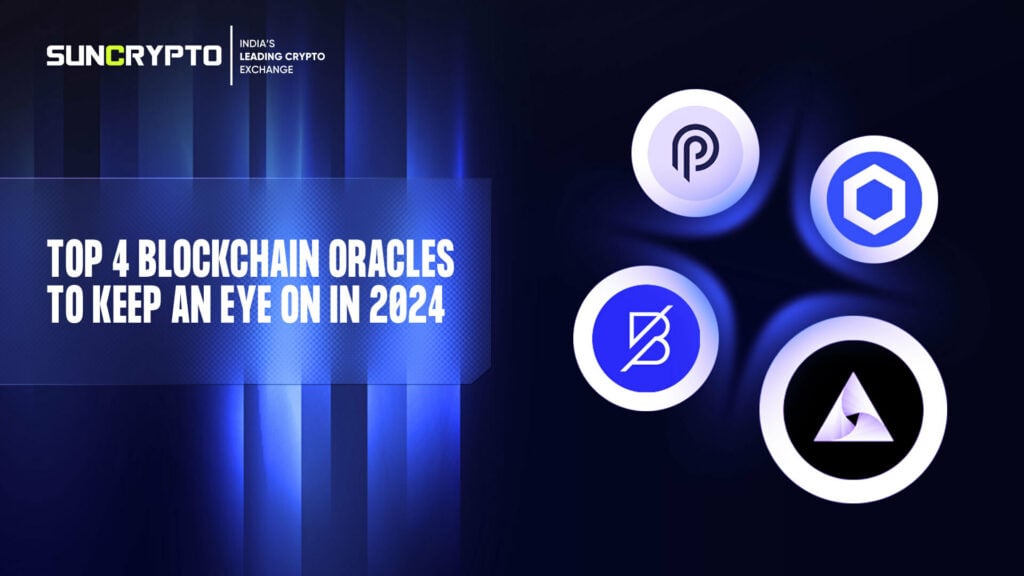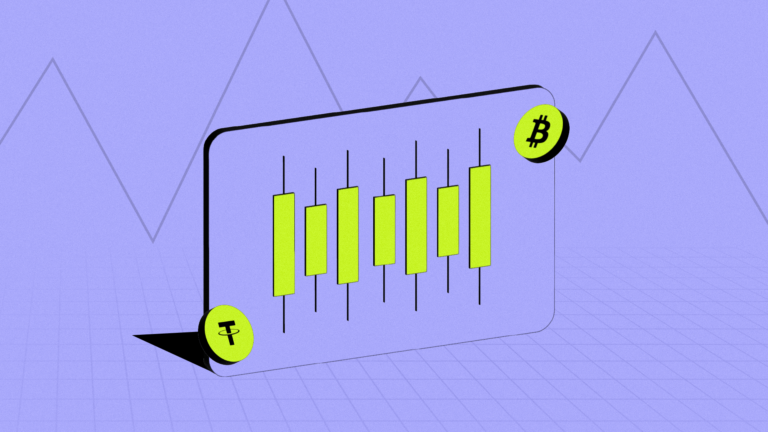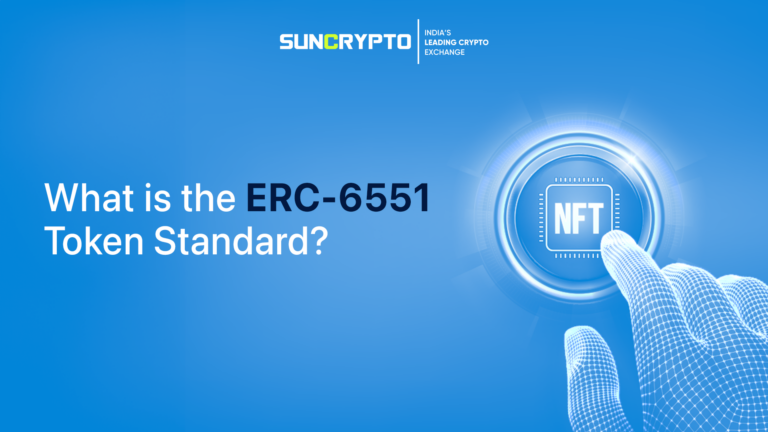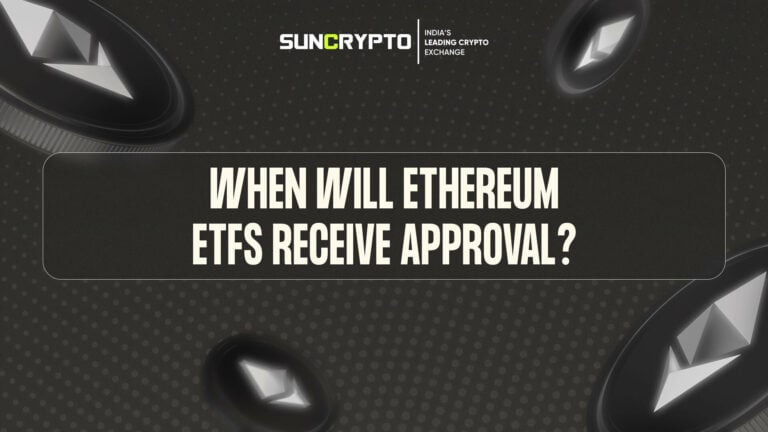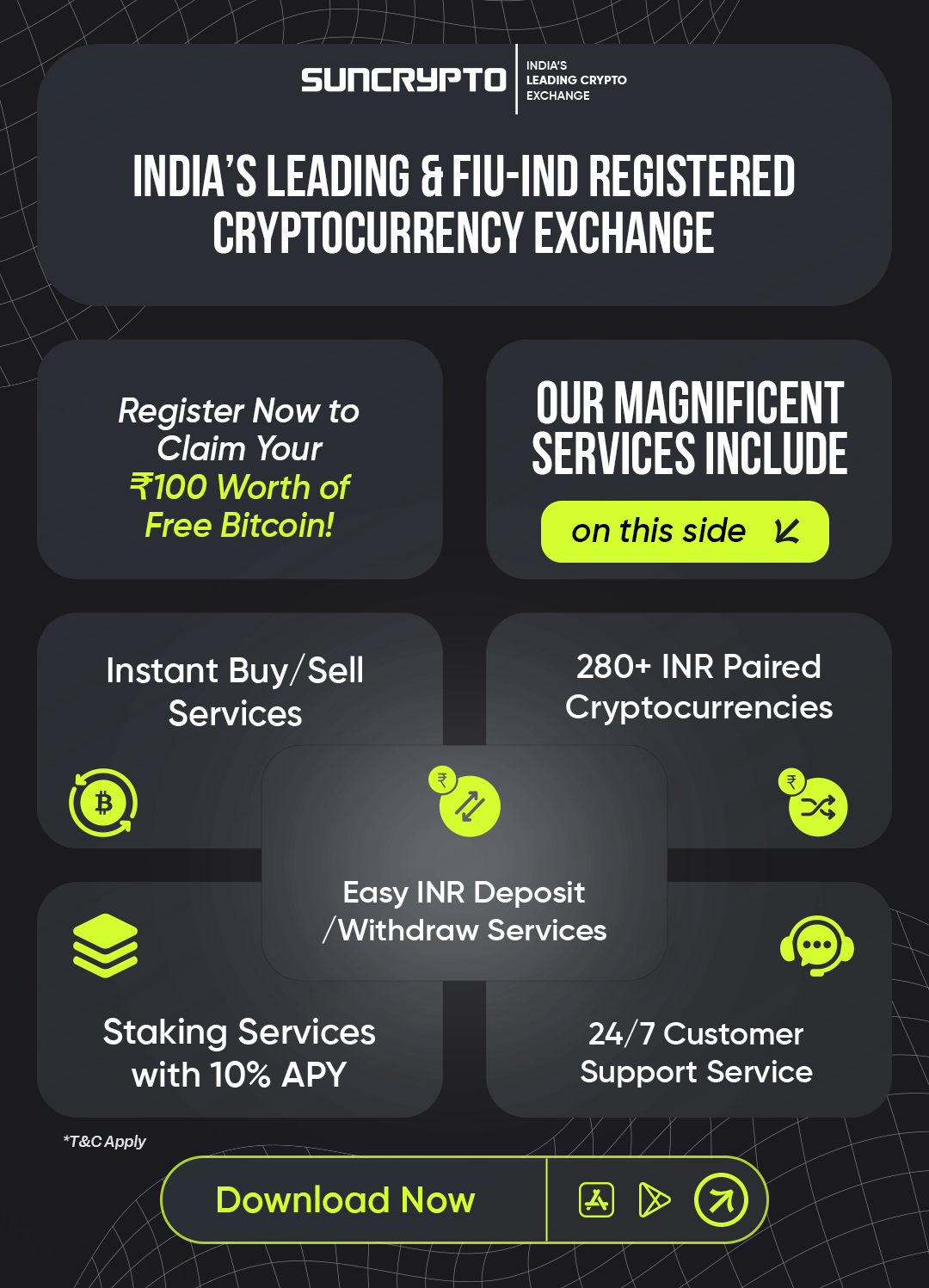Decentralized blockchain oracles serve as essential components within the blockchain and web3 ecosystem, facilitating connectivity between on-chain and off-chain realms. Their primary role involves bridging this gap, thereby empowering blockchain technology to wield tangible influence and practicality in real-world scenarios.
In short, oracles act as conduits that enable smart contracts on the blockchain to engage with external data and systems. This function holds immense significance as blockchains, inherently, lack direct access to external data sources. This capability becomes pivotal in unlocking the complete potential of smart contracts, which are designed to autonomously execute based on predefined conditions.
The significance of oracles extends to web3, which represents the internet’s next phase centered around decentralization and blockchain innovations. Through decentralized oracles, decentralized applications (dApps) gain the ability to seamlessly interact with real-world data, enhancing their applicability and value across diverse sectors like finance, insurance, supply chain management, and beyond.
What Is a Decentralized Oracle Network (DON)?
A Decentralized Oracle Network (DON) represents an advanced system of blockchain oracles. Unlike traditional oracles that depend on a single data source, DONs employ a network of nodes to acquire, authenticate, and transmit data from various origins. This decentralized methodology significantly heightens the security, dependability, and credibility of data utilized by smart contracts.
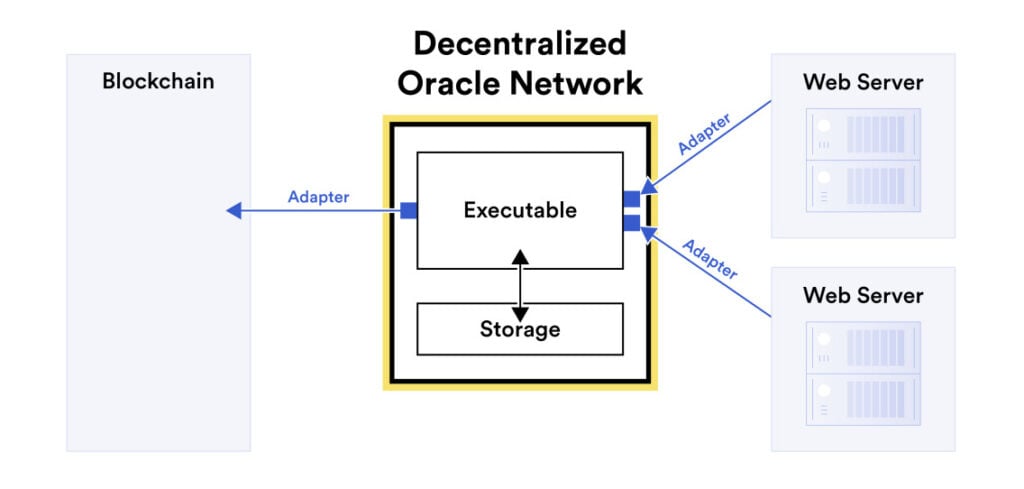
Source: Medium
Within a DON, numerous autonomous nodes collaborate to gather and validate data before its integration into the blockchain. This procedure mitigates the risks associated with data tampering, inaccuracies, and vulnerabilities associated with centralized points of data access, all of which are critical issues in decentralized settings.
DONs find particular relevance in complex contractual scenarios requiring information from diverse origins, such as weather data for agricultural insurance or pricing data for decentralized financial (DeFi) applications.
How Does a Decentralized Oracle Protocol Work?
A decentralized oracle protocol functions by following a sequence of steps to ensure the secure and dependable transmission of data onto the blockchain:
▪️ Data Request: A request for data, such as stock prices or weather conditions, is initiated by a smart contract.
▪️ Node Selection: The protocol chooses an assortment of independent nodes responsible for fetching the required data.
▪️ Data Retrieval: Each designated node gathers data from its allocated external sources.
▪️ Data Validation: Subsequently, nodes verify and consolidate the collected data, frequently employing consensus mechanisms.
▪️ Data Delivery: The compiled data is then conveyed back to the smart contract.
▪️ Settlement and Rewards: Nodes receive rewards for their contributions, often in the form of the network’s native cryptocurrency.
Role of Blockchain Oracles in Web3
Decentralized Oracle networks play a pivotal role in fortifying security and confidence within the web3 ecosystem. These networks offer substantial benefits that empower the advancement and efficacy of dApps, encompassing:
▪️ Augmented Security and Trust: Decentralized oracles fortify the reliability and trustworthiness of dApps by furnishing secure access to external data, thereby substantially mitigating risks associated with data tampering and vulnerability to singular points of failure.
▪️ Integration of Real-World Data: They bridge the essential divide between smart contracts and off-chain data, enabling smart contracts to engage with and react to real-world occurrences and information, crucial for a diverse spectrum of dApps.
▪️ Enhanced Data Dependability and Precision: Through the consolidation of data from multiple sources, these blockchain oracles ensure the accuracy and dependability of data supplied to smart contracts, critical for applications in domains like DeFi, insurance, and supply chain management.
▪️ Expanded Interoperability and Versatility: Decentralized oracles facilitate cross-chain functionality, enabling seamless exchange of information across diverse blockchain networks. They also offer customization options to meet various dApp needs, bolstering overall interoperability and adaptability within the web3 sphere.
▪️ Transparency and Community-Led Governance: The workings of decentralized oracles are transparent and traceable on the blockchain. Furthermore, many networks incorporate community-driven governance, enabling democratic decision-making and aligning incentives through tokenization. This fosters a user-centric and self-sustaining ecosystem.
Best 4 Decentralized Oracles in the Crypto Market
The subsequent decentralized oracles offer distinct advantages within the blockchain ecosystem, addressing a wide array of requirements and applications. Our evaluation considers their popularity, supported blockchain networks, project integrations, and the volume of handled requests as of December 2023:
▪️ Chainlink (LINK): As a foremost decentralized oracle network, Chainlink facilitates the transmission of real-world data to smart contracts on the blockchain. Renowned for its robustness, it boasts extensive partnerships across various industries. The LINK token primarily compensates node operators within its decentralized oracle network for tasks involving data retrieval, validation, and delivery for smart contracts.
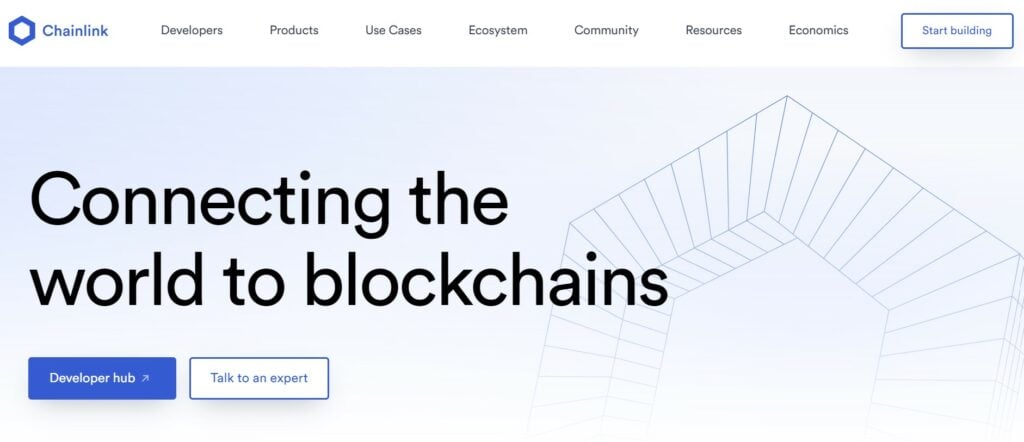
Utilizing independent nodes, Chainlink ensures precise and dependable data retrieval from numerous external sources, distinguishing itself with decentralized computation capabilities for intricate tasks off-chain. Its reputation for heightened security and data dependability is noteworthy.
▪️ Pyth Network (PYTH): Pyth Network specializes in providing precise financial market data, including asset prices, to blockchain applications. Within the Pyth Network, the PYTH token incentivizes data providers to furnish and maintain accurate real-world data, fostering a network of contributors rewarded for their contributions.
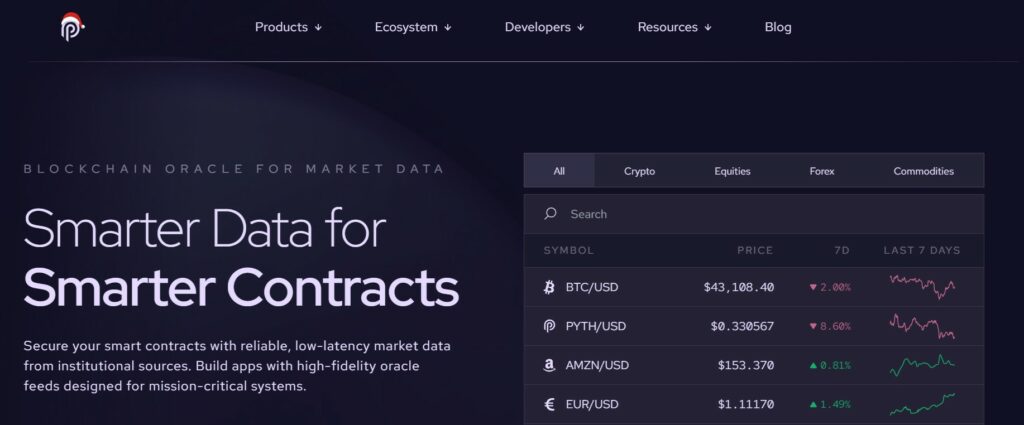
Aggregate data from esteemed data providers is channeled onto the blockchain by Pyth Network, emphasizing high-frequency updates and a focus on financial market data. With its alliances in the financial sector and emphasis on real-time market data, Pyth Network is strategically positioned to supply critical financial data for blockchain applications amid burgeoning DeFi interest.
▪️ Band Protocol (BAND): Band Protocol’s decentralized data blockchain oracles focus on on-chain data availability, prioritizing scalability and adaptability. Employing a delegated proof of stake model, it ensures swift and precise data delivery through its network of Oracle nodes. The BAND token serves governance purposes and as a security measure, with validators staking BAND to engage in network activities, secure data feeds, and receive rewards.
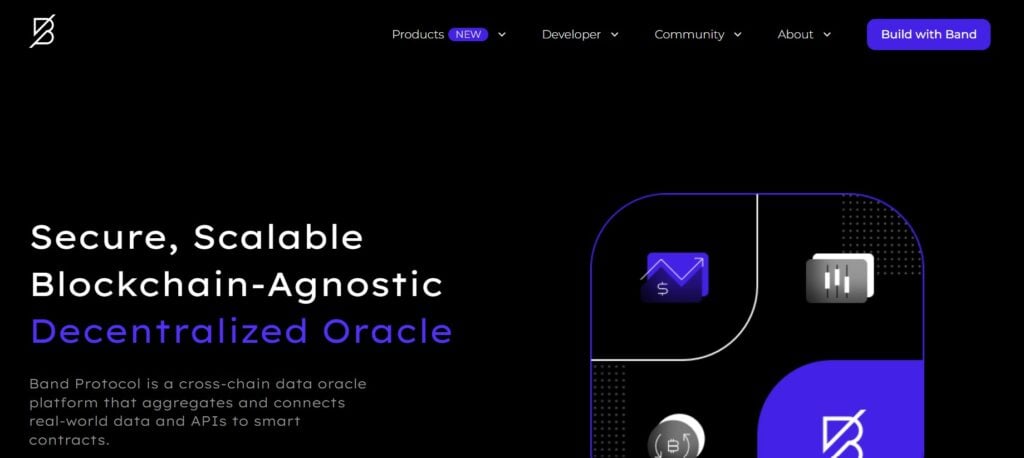
Distinguished by cross-chain data sharing, customizable oracle scripts, and a scalability emphasis, Band Protocol’s versatility across diverse blockchain environments and community-centric approach portend promising future development and adoption, positioning it as a prominent oracle network.
▪️ API3 (API3): API3 bridges traditional APIs with the blockchain, offering a more direct route for data feeds. It empowers API providers to manage their nodes, enabling direct data provision to the blockchain without intermediary intervention. Governance within the API3 ecosystem relies on API3 tokens, enabling holders to vote on proposals and oversee decentralized APIs and project direction.
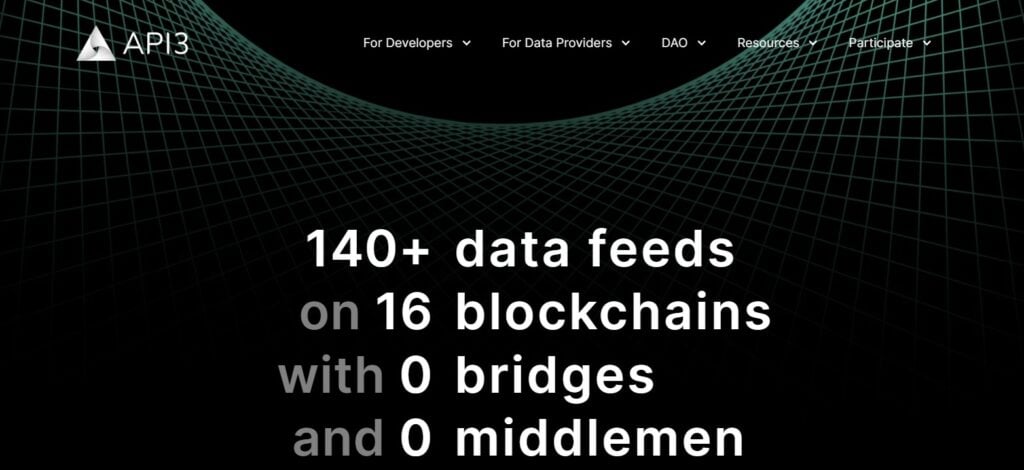
Unique aspects of the API3 Oracle network include a direct API-to-smart-contract interface, decentralized governance, and a focus on reducing dependence on third-party intermediaries. API3’s innovative approach to decentralized blockchain oracles and potential for integrating traditional data onto the blockchain position it as a promising participant in the evolving Oracle landscape.
How to Pick the Best Decentralized Oracle Projects
Consider these factors when selecting the most suitable decentralized oracle projects for investment:
▪️ Scrutinize the Technology and Innovations: Evaluate the project’s technology, security measures, efficiency, scalability, and novel data verification methods.
▪️ Examine Adoption and Ecosystem in Blockchain Oracles: Assess the adoption rate, partnerships, and ecosystem size. A robust community and transparent communication are pivotal.
▪️ Analyze Tokenomics and Interoperability Support: Grasp the utility of the oracle’s native token and its economic incentives. Confirm support for multiple blockchains to widen its scope.
▪️ Delve into Use Cases, Compliance, and Regulation: Seek diverse real-world applications and the project’s stance on regulatory compliance for sustained success.
▪️ Evaluate Financial Health, Achievements, and Market Conditions: Review financial stability, funding history, and track record, and consider prevailing market trends of the Oracle project.
Conclusion
Decentralized blockchain oracles play a crucial role in both blockchain and Web3 systems. They act as vital connectors between on-chain and off-chain realms, boosting the efficiency and trust of smart contracts in various industries. Top projects like Chainlink, Pyth Network, Band Protocol, API3, and Flare Network offer diverse strengths and approaches in this area.
Choosing the right Oracle project requires a thorough assessment of technology, adoption, and integration potential within the growing Web3 landscape. The future of blockchain hinges on the development and effectiveness of these essential oracles.
To learn more about Blockchain Oracles, go check out SunCrypto Academy.
Disclaimer: Crypto products and NFTs are unregulated and can be highly risky. There may be no regulatory recourse for any loss from such transactions. All content provided is for informational purposes only, and shall not be relied upon as financial/investment advice. Opinions shared, if any, are only shared for information and education purposes. Although the best efforts have been made to ensure all information is accurate and up to date, occasionally unintended errors or misprints may occur. We recommend you do your own research or consult an expert before making any investment decision. You may write to us at [email protected].

